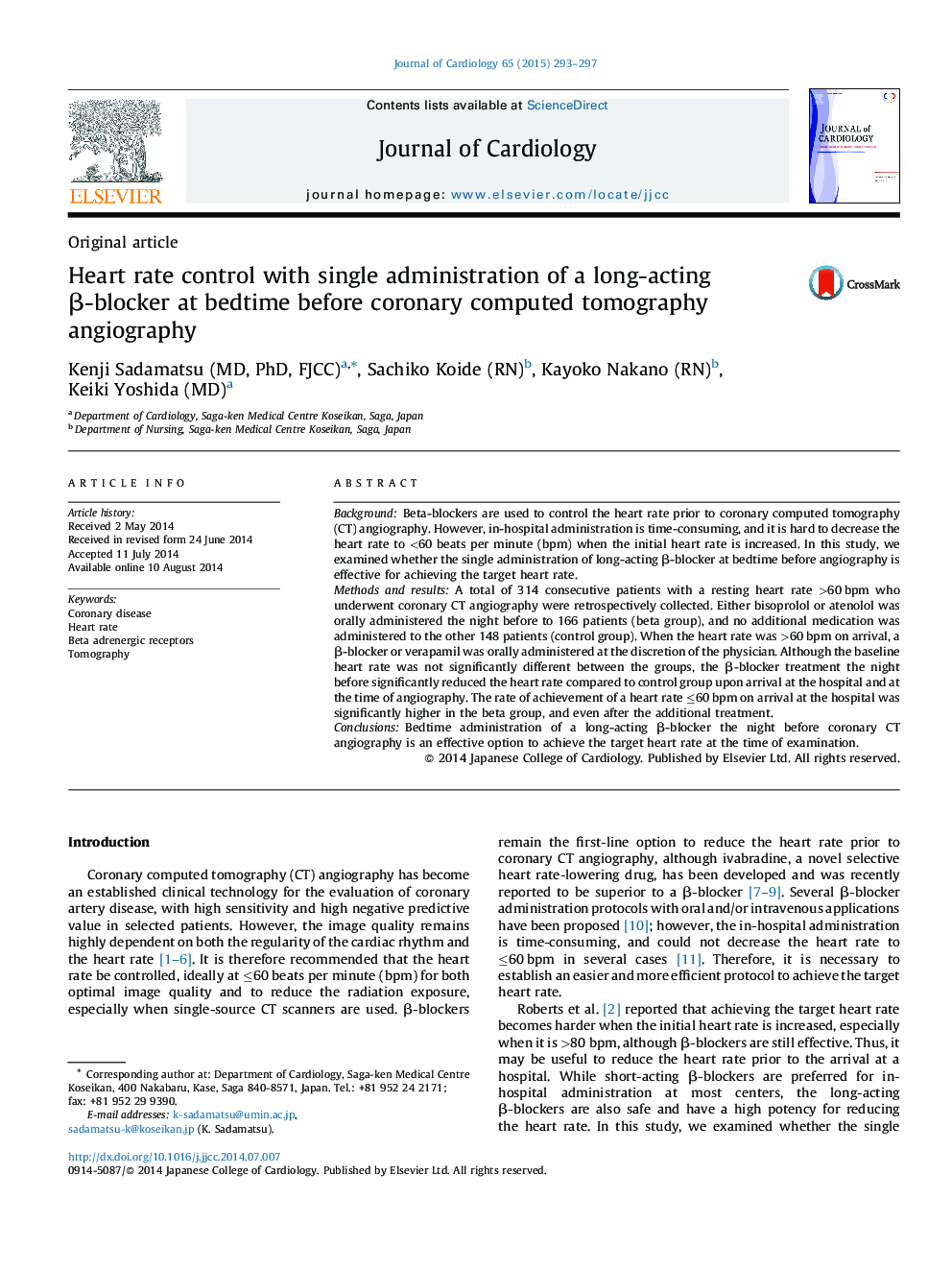| Article ID | Journal | Published Year | Pages | File Type |
|---|---|---|---|---|
| 2963065 | Journal of Cardiology | 2015 | 5 Pages |
BackgroundBeta-blockers are used to control the heart rate prior to coronary computed tomography (CT) angiography. However, in-hospital administration is time-consuming, and it is hard to decrease the heart rate to <60 beats per minute (bpm) when the initial heart rate is increased. In this study, we examined whether the single administration of long-acting β-blocker at bedtime before angiography is effective for achieving the target heart rate.Methods and resultsA total of 314 consecutive patients with a resting heart rate >60 bpm who underwent coronary CT angiography were retrospectively collected. Either bisoprolol or atenolol was orally administered the night before to 166 patients (beta group), and no additional medication was administered to the other 148 patients (control group). When the heart rate was >60 bpm on arrival, a β-blocker or verapamil was orally administered at the discretion of the physician. Although the baseline heart rate was not significantly different between the groups, the β-blocker treatment the night before significantly reduced the heart rate compared to control group upon arrival at the hospital and at the time of angiography. The rate of achievement of a heart rate ≤60 bpm on arrival at the hospital was significantly higher in the beta group, and even after the additional treatment.ConclusionsBedtime administration of a long-acting β-blocker the night before coronary CT angiography is an effective option to achieve the target heart rate at the time of examination.
